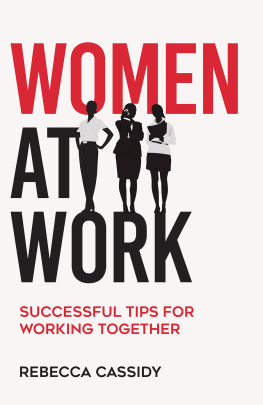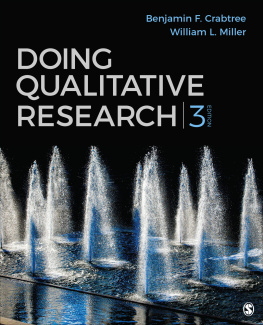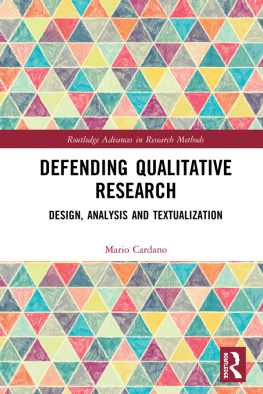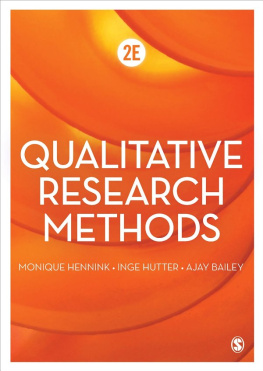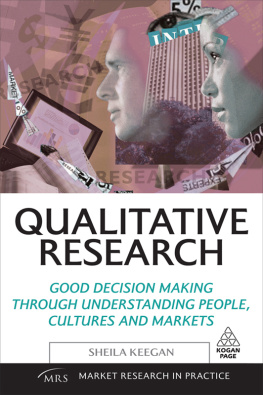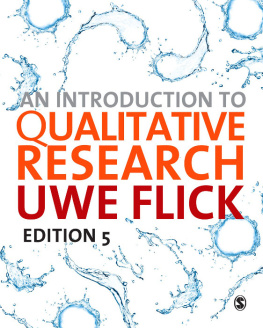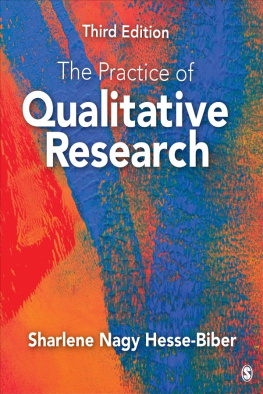Qualitative Research in Gambling
Gambling is both a multi-billion-dollar international industry and a ubiquitous social and cultural phenomenon. It is also undergoing significant change, with new products and technologies, regulatory models, changing public attitudes and the sheer scale of the gambling enterprise necessitating innovative and mixed methodologies that are flexible, responsive and agile. This book seeks to demonstrate that researchers should look beyond the existing disciplinary territory and the dominant paradigm of problem gambling in order to follow those changes across territorial, political, technical, regulatory and conceptual boundaries.
The book draws on cutting-edge qualitative work in disciplines including geography, organisational studies, sociology, East Asian studies and anthropology to explore the production and consumption of risk, risky places, risk technologies, the gambling industry and connections between gambling and other kinds of speculation such as financial derivatives. In doing so it addresses some of the most important issues in contemporary social science, including: the challenges of studying deterritorialised social phenomena; globalising technologies and local markets; regulation as it operates across local, regional and international scales; and the rise of games, virtual worlds and social media.
Rebecca Cassidy is Professor of Anthropology at Goldsmiths, University of London. She has written two monographs about horseracing and betting in Britain and the United States. Her current project, supported by the European Research Council, uses ethnographic methods to study gambling environments in Europe.
Andrea Pisac is a Research Fellow in Anthropology at Goldsmiths, University of London. Her PhD dissertation explored how foreign books travelling to the UK readership create textual authenticity and authority. Her postdoctoral research focuses on casino and card gambling in Slovenia and its neighbouring regions.
Claire Loussouarn is a Research Fellow in Anthropology at Goldsmiths, University of London. Her PhD dissertation explored casino gambling among Chinese migrants in London while her postdoctoral research focuses on the British spread-betting industry.
Qualitative Research in Gambling
Exploring the production and consumption of risk
Edited by Rebecca Cassidy,
Andrea Pisac and Claire Loussouarn
First published 2013
by Routledge
2 Park Square, Milton Park, Abingdon, Oxon OX14 4RN
and by Routledge
711 Third Avenue, New York, NY 10017
Routledge is an imprint of the Taylor & Francis Group, an informa business
2013 selection and editorial material, Rebecca Cassidy, Andrea Pisac and Claire Loussouarn; individual chapters, the contributors
The right of the editors to be identified as the authors of the editorial material, and of the authors for their individual chapters, has been asserted in accordance with sections 77 and 78 of the Copyright, Designs and Patents Act 1988.
All rights reserved. The Open Access version of this book, available at www.tandfebooks.com, has been made available under a Creative Commons Attribution-Non Commercial-No Derivatives 3.0 license.
Trademark notice: Product or corporate names may be trademarks or registered trademarks, and are used only for identification and explanation without intent to infringe.
British Library Cataloguing-in-Publication Data
A catalogue record for this book is available from the British Library
Library of Congress Cataloging-in-Publication Data
Qualitative research in gambling : exploring the production and consumption of risk / edited by Rebecca Cassidy, Andrea Pisac and Claire Loussouarn.
pages cm
1. GamblingResearch. 2. Gambling industry. I. Cassidy, Rebecca. II. Pisac, Andrea. III. Loussouarn, Claire.
HV6710.Q35 2014
795.0721dc23 2013019405
ISBN 13: 978-1-138-92455-0 (pbk)
ISBN 13: 978-0-415-65938-3 (hbk)
Rebecca Cassidy is Professor of Anthropology at Goldsmiths, University of London. She has written two monographs about horseracing and betting in Britain and the United States. Her current project, supported by the European Research Council, uses ethnographic methods to study gambling environments in Europe.
Lily Chumley is Assistant Professor in the Department of Media, Culture and Communication at New York University, Steinhardt. She is an anthropologist of China with research focusing on semiotics and political economy. Her first project, Self-Styling: Practicing Creativity and Remaking Aesthetics in PostSocialist China (dissertation 2011, forthcoming) examines changing subjectivities produced through art schools and the design industries in the age of reform, 19782008. Her contribution to this book is the first publication from a new research project on womens investment and speculation practices in southern China, Playing the World System: Currency Speculation at the Bank of China.
Fiona Dobbie is a Research Fellow at Stirling University. Before returning to academia she spent 12 years working as an applied social researcher across a range of substantive and methodological areas. Her current research focuses on smoking cessation and addictions.
Natasha Dow Schll, a cultural anthropologist by training, is Associate Professor in the Program in Science, Technology, and Society at the Massachusetts Institute of Technology. Her book, Addiction by Design: Machine Gambling in Las Vegas (Princeton University Press, 2012), draws on extended archival and ethnographic research among compulsive gamblers and the designers of the slot machines they play to explore the relationship between technology design and the experience of addiction.
Ghazaleh Gariban graduated in Organisation Sciences at the VU University Amsterdam. For her MSc thesis she participated in a research project and conducted extensive empirical fieldwork in a successful British online betting company. Her research interests focus on issues related to organisational culture, technology and space. She currently works at Deutsche Welle, a German broadcasting company, in the organisational development department.
Keith Hart lives with his family in Paris. He is codirector of the Human Economy research programme at the University of Pretoria, South Africa, and Centennial Professor of Economic Anthropology at the London School of Economics. He has taught in a dozen universities on both sides of the Atlantic, for the longest time at Cambridge, where he was director of the African Studies Centre. He is an anthropologist who contributed the idea of an informal economy to development studies and has written extensively on money. He has also worked as a journalist, publisher, consultant and gambler. His recent books include (coedited) Market and Society: The Great Transformation Today (Cambridge University Press, 2009), (coedited) The Human Economy: A Citizens Guide (Polity Press, 2010) and (with Chris Hann) Economic Anthropology: History, Ethnography, Critique (Polity Press, 2011). His website is http://thememorybank.co.uk.
Sytze F. Kingma is Lecturer in Organisational Space and Technology at the Department of Organization Sciences, VU University Amsterdam, The Netherlands. His research interests involve the confrontation between the material and the virtual dimensions of organisational networks, and the way risk is implicated in contemporary organisational contexts. He has published extensively in the field of gambling and is the editor of



